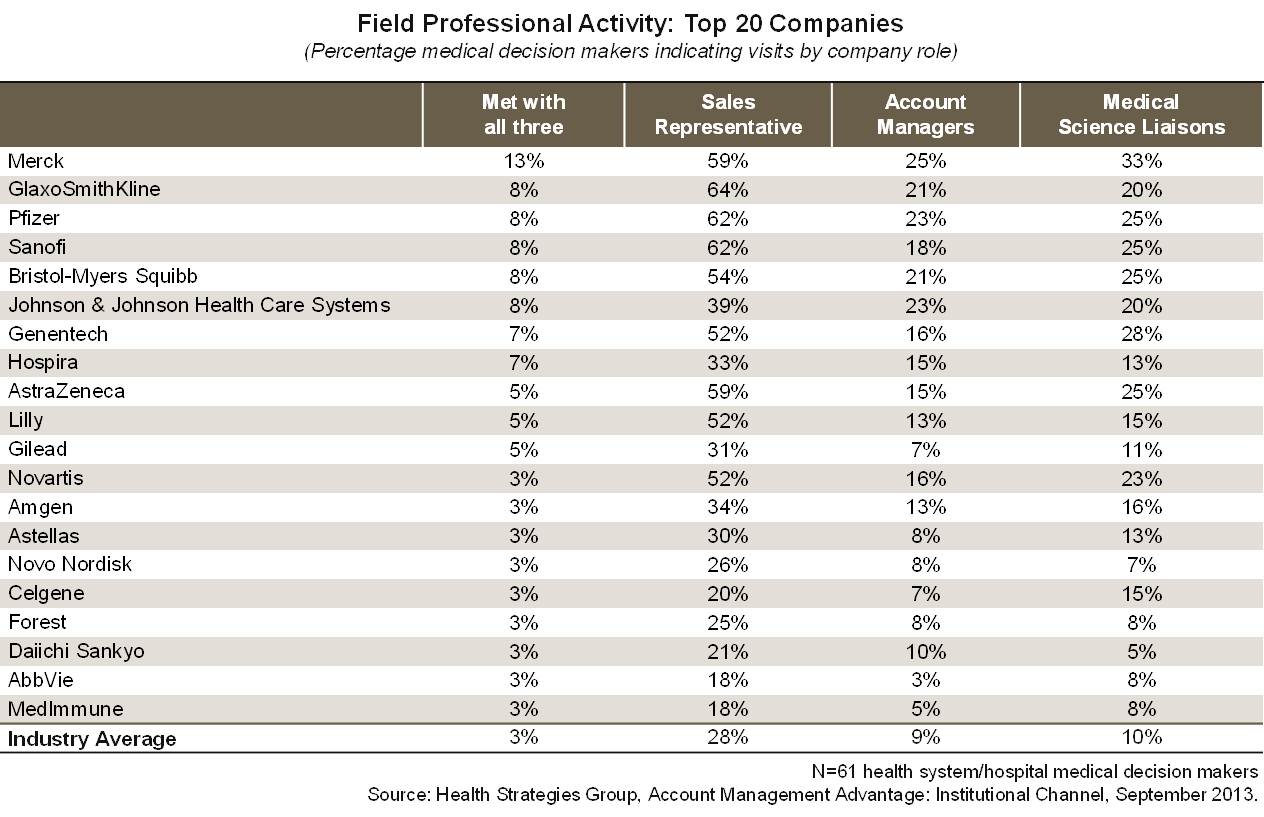Four pharmaceutical and biotech companies—Merck, GlaxoSmithKline, Pfizer and Sanofi—have the most in-person meetings with medical decision makers at hospitals and health systems, according to a new market research report from Health Strategies Group.
Medical decision makers at hospitals and health systems report having the most meetings with sales representatives, account managers and medical science liaisons at these four companies. This helps the companies differentiate themselves from the competition, according to Company Relationships with Medical Decision Makers, part of the Account Management Advantage: Institutional Channel service offered by Health Strategies Group.
“Companies that work best with medical decision makers use multiple team members to address their key questions,” says Bob Shewbrooks, Principal at Health Strategies Group. “In fact, contact with all three roles—sales representatives, account managers and medical science liaisons—strengthens organizational relationships with hospitals and health systems.”
However, all companies have opportunities to strengthen their relationships with medical decision makers, Shewbrooks says. The report identifies six cornerstones of company relationships with medical decision makers at hospitals and health systems: Company Approach, Sales Representatives, Account Management, Medical Liaisons, Programs and Support, and Contracting. Each cornerstone comprises several attributes, strategic approaches and practices that are critical to relationship building.
Of the six cornerstones, Company Approach is the most important contributor to strong relationships with medical decision makers, according to the report. The research also found that medical decision makers tend to overemphasize the importance of Programs and Support in building strong relationships. “While Programs and Support do matter, our correlation analysis indicates that Company Approach is more significant in predicting partner-level relationships,” adds Shewbrooks.
To strengthen their Company Approach, pharmaceutical and biotech companies can:
- Commit to improvements that benefit their relationship with a hospital or health system as a whole.
- Understand the relationships between hospitals and their business partners and work to strengthen them.
- Demonstrate a strong commitment to a health system.
- Consider new ideas, business models or approaches suggested by a health system.
- Support a hospital’s patient groups in the community.
Pharmaceutical executives can use the Account Management Advantage: Institutional Channel service to evaluate their performance versus that of key competitors and build stronger relationships with hospitals and health systems. The latest report is based on an in-depth analysis of 2,684 relationships and includes input from 61 medical decision makers at leading health systems and hospitals. For additional information on the service, contact Bob Shewbrooks, principal, at (609) 397-5282 or AMAI@healthstrategies.com.








